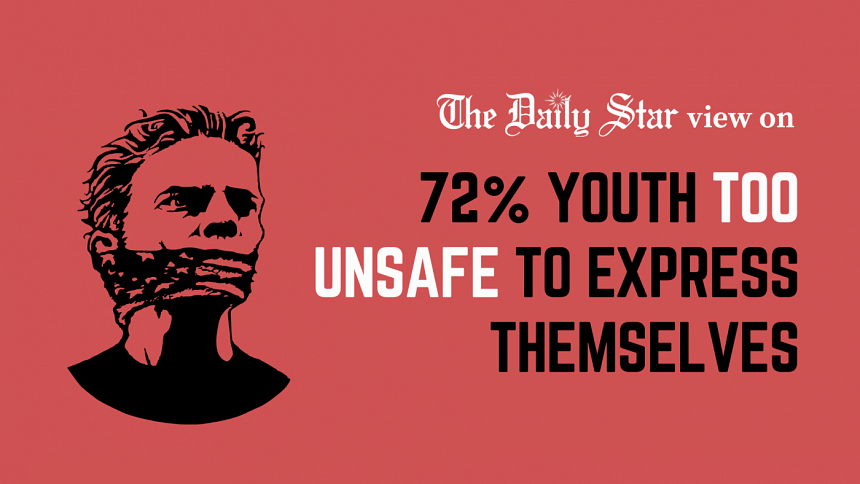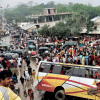Why is our youth too scared to speak out?

How youths feel about their future can often be a litmus test for the overall health and development of a country. Are they hopeful about their prospects, or does the road ahead seem even bleaker than before? According to the recent Youth Matters Survey 2023, conducted by Bangladesh Youth Leadership Center (BYLC) in collaboration with Brac University's Centre for Peace and Justice (CPJ), the youths of Bangladesh are, unfortunately, leaning towards the latter.
Out of the 5,609 survey participants aged 16-35 years, 55.3 percent considered Bangladesh as not a peaceful country, 68.6 percent believed the current education system does not adequately equip them with the necessary skills to secure employment or establish businesses, and 61.8 percent attested to their physical and mental health being affected by price hikes. In terms of the issues affecting their lives, almost 89 percent of respondents identified corruption, alongside unemployment (67 percent), inflation (51 percent) and climate change (73 percent).
Given the arbitrary use of draconian laws like the Digital Security Act—only this week, Jagannath University student Khadijatul Kubra was finally cleared for release on bail by the Supreme Court after being arrested in August last year—it is not difficult to understand why young people would feel they are unable to exercise their right to freedom of speech. How can the youth not feel disillusioned when something as simple as hosting an online webinar can land them in jail?
It is clear that today's youths are facing unique and unprecedented challenges in the era of the climate emergency, and due to recent global political and economic shifts. However, we must ask our administration: in this day and age, when Bangladesh has achieved so many of its development milestones, why are the country's youths still not being provided with the jobs, education, and economic stability they need?
What's even more disturbing is that 71.5 percent of respondents said they felt unsafe expressing their opinions on public platforms. Given the arbitrary use of draconian laws like the Digital Security Act—only this week, Jagannath University student Khadijatul Kubra was finally cleared for release on bail by the Supreme Court after being arrested in August last year—it is not difficult to understand why young people would feel they are unable to exercise their right to freedom of speech. How can the youth not feel disillusioned when something as simple as hosting an online webinar can land them in jail?
Despite these odds, the fact that almost 58 percent of youths do not wish to leave the country, that more than 70 percent want to cast their votes in elections, and that an overwhelming majority of respondents say they would not leave the country if the challenges they face were resolved, show that they believe in a better future. Time and again, we have seen the country's youth create, innovate and excel, making us proud on regional and international platforms. Clearly, they have not given up on their country. The question is, when will the country—or rather, the country's administration—prove that it has not given up on its youth, and commit to a future with quality education, economic and climate stability, democracy, and freedom of speech?


 For all latest news, follow The Daily Star's Google News channel.
For all latest news, follow The Daily Star's Google News channel. 









Comments